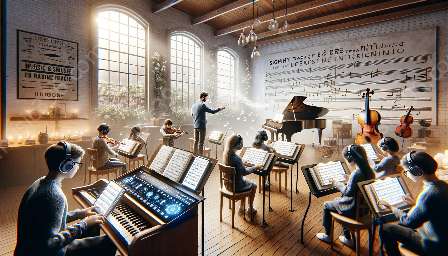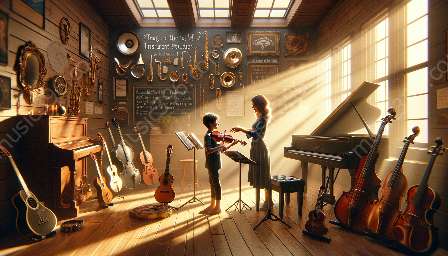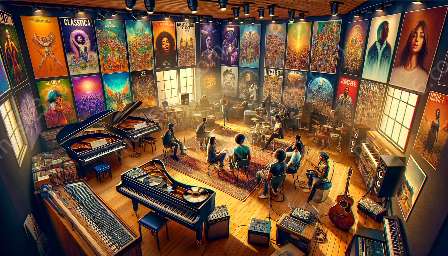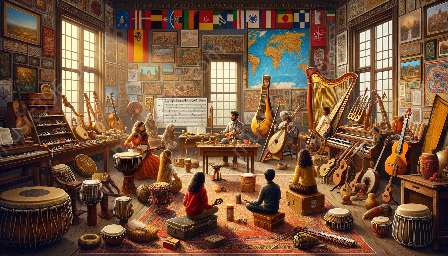Music is a universal language that has the power to evoke emotions, tell stories, and connect people across cultures and time. The study of musical instruments goes beyond learning techniques; it inspires creativity and innovation in composition and arrangement, shaping the landscape of instrument studies and music education.
The Role of Musical Instruments in Inspiring Creativity
Musical instruments are not merely tools for producing sound; they are vessels for creativity and expression. The exploration of different instruments exposes musicians to a variety of sounds, textures, and timbres, igniting the imagination and inspiring new musical ideas. By understanding the unique characteristics of each instrument, composers and arrangers can push the boundaries of traditional musical conventions, creating innovative and captivating pieces.
Expanding Sonic Horizons
Studying musical instruments opens doors to new sonic possibilities. As musicians delve into the intricacies of various instruments, they discover unconventional playing techniques, extended performance methods, and sonic manipulations that can breathe life into compositions and arrangements. This exploration of sonic horizons fuels the creative process, fostering an environment where innovation thrives and traditional norms are challenged.
Building a Holistic Understanding of Music
Instrument studies provide a holistic understanding of music, allowing composers and arrangers to engage with music at a deeper level. By immersing themselves in the study of instruments, musicians gain insights into musical theory, harmony, and orchestration, enriching their compositional and arranging skills. This comprehensive understanding empowers them to experiment with diverse instrumentation and orchestral palettes, resulting in imaginative and boundary-pushing musical works.
Encouraging Cross-Pollination of Ideas
The study of musical instruments encourages the cross-pollination of ideas across different musical traditions and genres. Musicians who embrace a variety of instruments and musical styles are adept at blending influences, transcending cultural boundaries, and infusing their compositions with diverse and eclectic elements. This interdisciplinary approach breathes innovation into the world of composition and arrangement, fostering a rich tapestry of musical expression.
Enhancing Music Education through Instrument Studies
Instrument studies play a pivotal role in enriching music education by nurturing creativity and fostering innovation. When students engage with diverse musical instruments, they develop a deeper appreciation for the art of composition and arrangement. This hands-on exploration stimulates their imagination, encourages original thinking, and cultivates a passion for pushing artistic boundaries.
Cultivating Collaborative Approaches
Musical instruments serve as catalysts for collaborative approaches to composition and arrangement. The study of instruments prompts musicians to work together, exchange ideas, and explore novel combinations of sounds. This collaborative spirit ignites a dynamic energy within musical communities, fueling a culture of creativity and innovation that transcends individual capabilities.
Empowering Artistic Expression
By delving into the study of musical instruments, composers and arrangers unlock the potential for limitless artistic expression. The intimate knowledge of instruments allows them to weave intricate musical tapestries, sculpt evocative soundscapes, and craft arrangements that captivate the senses. This empowerment of artistic expression serves as a testament to the transformative impact of instrument studies on the world of composition and arrangement.















